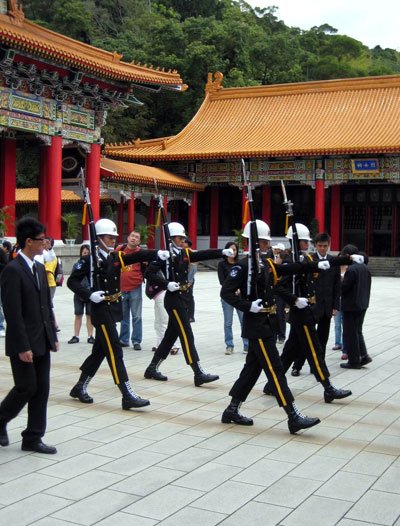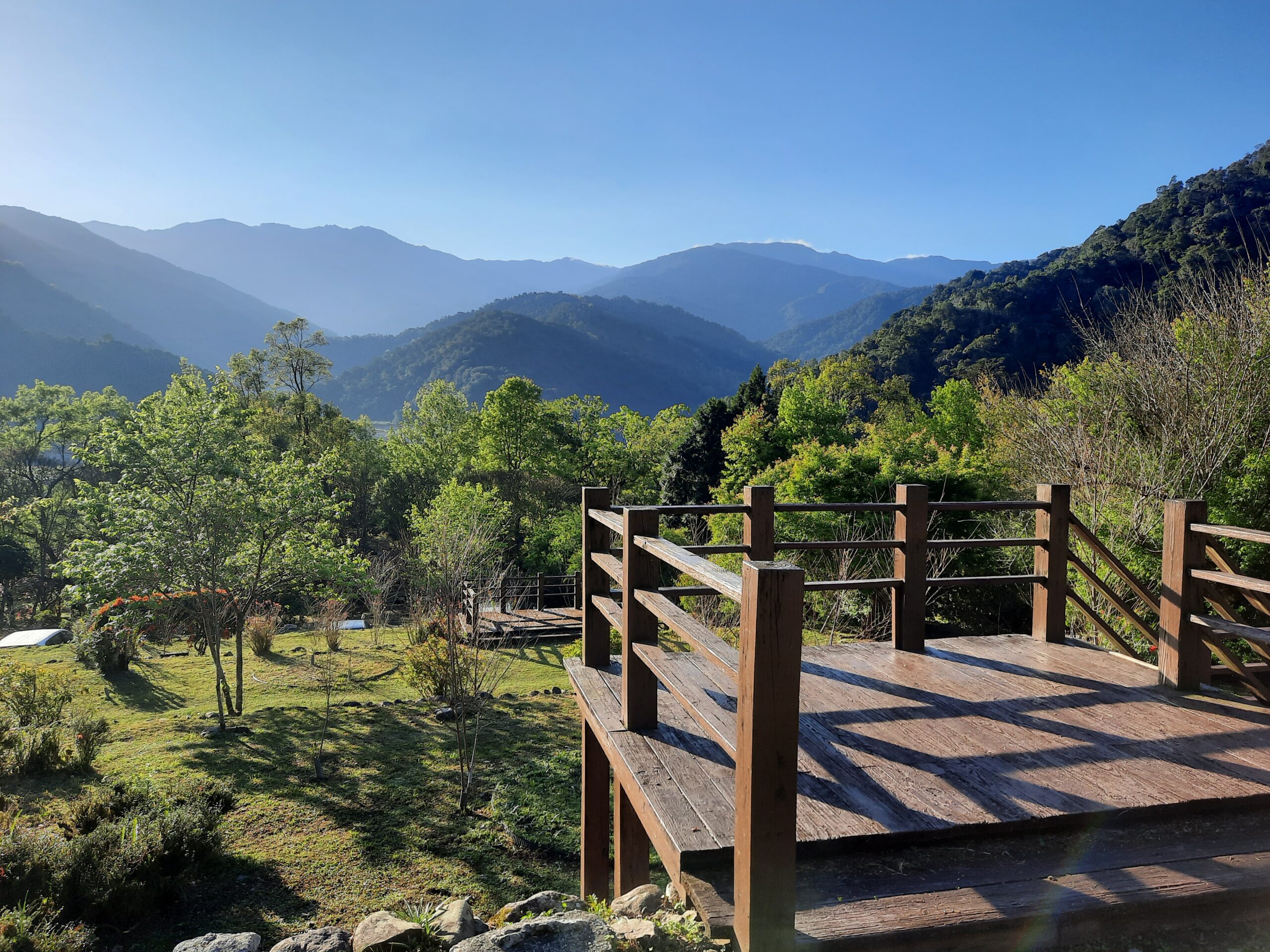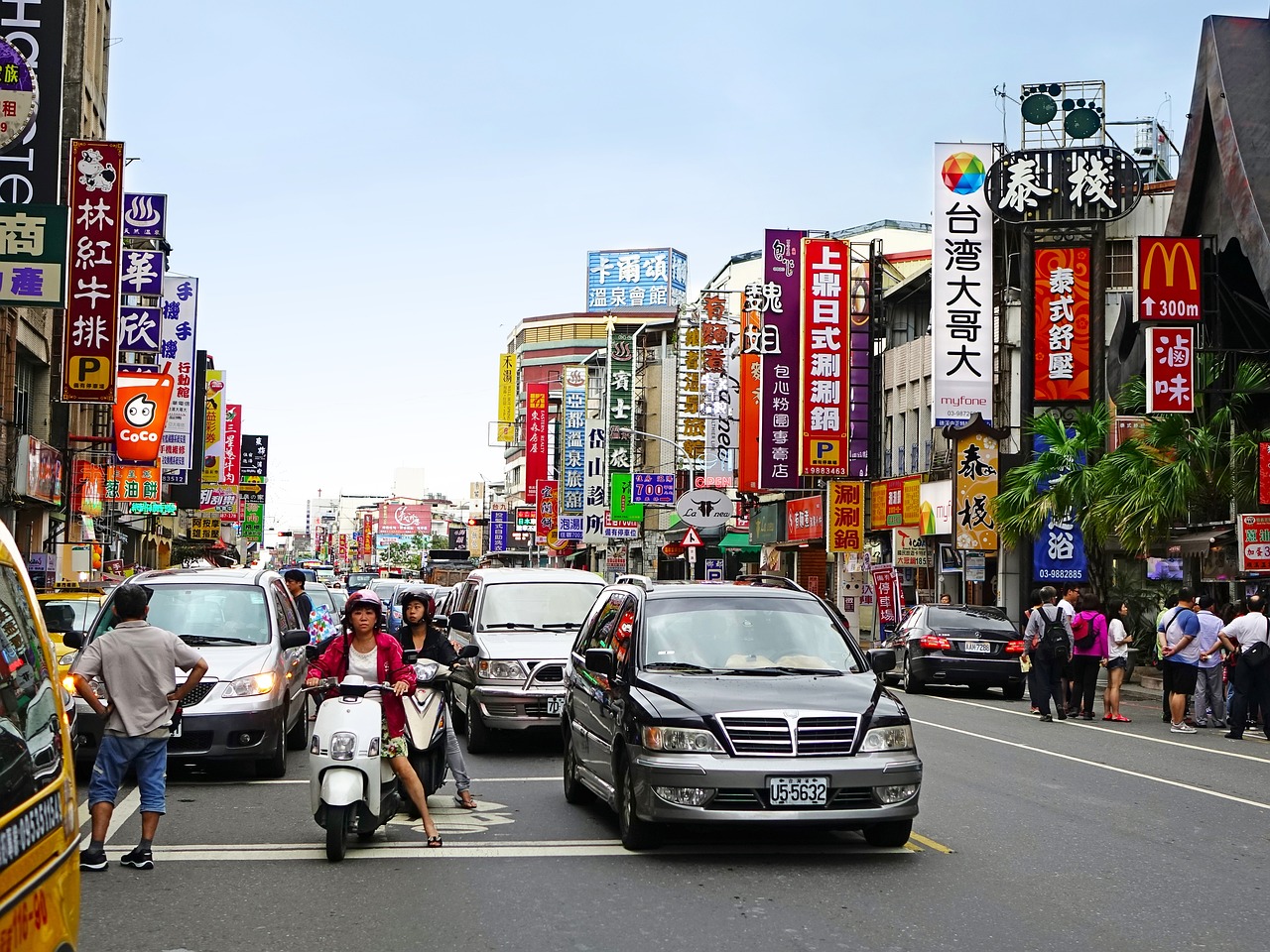Taiwan is an exceptionally safe place for tourists to visit. At the beginning of this year, Numbeo — a website which compiles cost of living and quality of life data about cities and countries worldwide — ranked Taiwan as third safest among the 142 countries and territories it surveyed. According to the website, only Qatar and the UAE are safer. And this result was no one off — last year Taiwan was also third, and in 2021 it ranked second out of 135 countries and territories.

Taipei Martyrs Shrine
Another report, this time published in February 2023 by British private-security company Get Licensed, came to a very similar conclusion. Taipei and Singapore were rated the world’s joint fifth safest holiday destinations. The only cities that are safer, according to the company, are Reykjavik in Iceland, the Swiss capital Bern, Bergen in Norway, and Kyoto in Japan.
In addition to the level of serious crime, the Get Licensed index takes into account the percentage of residents who feel safe walking alone at night, the percentage who fear being robbed, as well as terrorism, LGBT acceptance, police reliability, and the strength of the legal system.
Of course, Taiwan’s impressive level of safety doesn’t mean tourists should let their guard down entirely. And if they are first-time visitors, there is still a small risk they could have a trip-ruining experience.
Extra advice from our experts
Muchin Lee, one of Life of Taiwan’s highly experienced tour guides, says she always warns just-off-the-plane tourists not to drink unboiled tap water and to check on the freshness of food they buy from street vendors to avoid stomach trouble. What is more, some people are allergic to MSG (monosodium glutamate, a flavour enhancer that many Taiwanese chefs add to stir-fried vegetables and other savoury dishes) but they do not know it until they have a reaction. When helping her clients order in restaurants or at night markets, Muchin always asks whoever is doing the cooking not to add MSG.
Muchin also warns tourists to be careful when buying Taiwan’s famous high-mountain tea. ‘You might taste some and decide to buy it, but it’s possible the vendor may cheat you by swapping it for a different kind’, she cautions.

The early morning view at Cilan Resort, Yilan
At popular tourist destinations she has seen fruit-stand owners charge tourists double the going rate for cut fruit. To ensure that the tourists she guides have the best possible experience, she makes it her business to find out which shops should be avoided and which can be trusted. Like all Life of Taiwan guides, she never accepts any commission from businesses to which she brings her clients.
Understanding road-signs and menus
Renting a car or motorcycle and setting out on a self-guided tour of Taiwan has become a popular option in recent years, and Muchin advises those who do this to drive or ride very carefully, as not every local road user is skilled in defensive driving. On twisting mountain roads, they should expect to share a narrow thoroughfare with slow-moving cyclists and motorcyclists.
Many restaurants in Taiwan do not have English-language menus and some do not display fixed prices for certain dishes. There’s seldom an intention to overcharge, but because supply fluctuates throughout the year and items such as fish come in different sizes, the price can vary dramatically. ‘I’d therefore suggest to all tourists that they don’t order anything to eat or drink before confirming the price, especially if it’s a seafood restaurant’, says another Life of Taiwan regular guide, Hsihua Cheng.
Our guide Spencer Cheng has another piece of food-related advice. People should take into account how hot it can get in the summertime if they plan to buy something to eat later in the day. ‘Dressings like mayonnaise can go off quickly’, he warns.

Colourful yet crowded: A city street in Taiwan
In crowded cities like Taipei, Spencer advises everyone to take care because of the heavy traffic. When getting off a bus, it’s imperative to look right as sometimes motorcycles or bicycles try to sneak past stopped buses on the inside. When walking from A to B, you need to watch out for two-wheeled traffic on the pavement, as cyclists and motorcyclists sometimes use pedestrian walkways to take a shortcut or find a parking spot. When crossing a road, he urges tourists to look both ways and to be prepared to give way to vehicles, even though traffic rules give pedestrians priority over other road-users.
If you book a private tour of Taiwan, our driver-guides take advantage of their deep local knowledge to deliver you as close as possible to every stop. If you do want to walk, we’re happy to lead you on delightful strolls and hikes, in urban areas, in the countryside, and in the mountains. Get in touch with our experts today to plan your Taiwan guided tour and we will devise an itinerary that reflects your interests and the speed at which you’d like to explore a destination as varied and fascinating as Taiwan.
